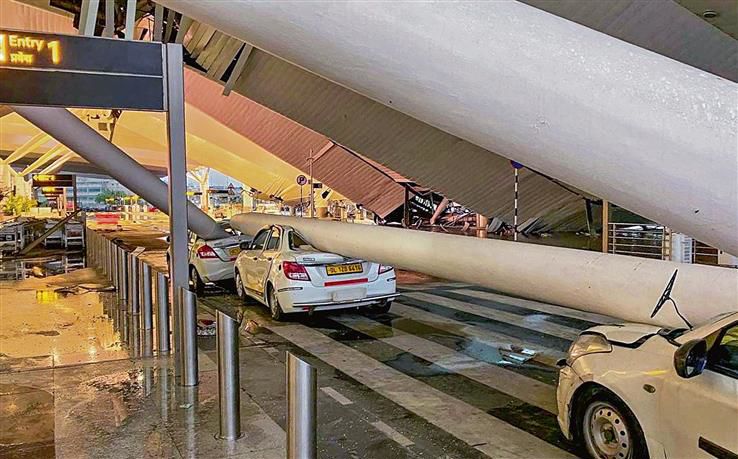FRIDAY’s roof collapse at the busy Delhi airport serves as a reminder of the underlying problems plaguing India’s ambitious infrastructure push. The incident, which occurred during the heaviest rainfall recorded in Delhi on a June day in 88 years, caused the death of one person and left several injured. It not only disrupted airport operations but also shook public confidence in the robustness of our infrastructure. The incident is symptomatic of a broader problem as similar lapses have been reported across the country. From the collapse of bridges in Bihar to water leakage in the newly built Ram Temple and the fury unleashed by the monsoon in Himachal Pradesh, such disasters raise questions about planning, execution and maintenance of projects.
The problem isn’t merely the rain; it is faulty drainage. As cities expand and green spaces turn to grey concrete, rainwater floods roads. Most new development projects lack proper stormwater drains, and many existing ones are repurposed for sewage. Elevated green belts and tiled roadsides obstruct natural drainage, leading to persistent urban flooding — an anthropogenic phenomenon. It calls for a re-evaluation of urban planning.
The Delhi airport incident also underscores the necessity of monitoring major projects. The Modi government has touted infrastructure development as a cornerstone of India’s economic policy, with more than
Rs 44 trillion to be invested over the next two years. However, the emphasis on rapid construction has seemingly overshadowed the importance of stringent standards and maintenance. The rush to inaugurate projects, often ahead of elections, compromises quality, turning these marvels into electoral gimmicks. Regular audits, adherence to international norms and accountability mechanisms are essential to prevent such tragedies. Ultimately, infrastructure is about more than just economic growth; it is about the wellbeing of the people, with their safety being a non-negotiable aspect of development. The roof collapse should catalyse a comprehensive overhaul of infrastructure policies to prioritise long-term safety and sustainability.









